Child deaths 'not properly investigated' at top hospital
- Published
'I feel like Great Ormond Street have taken her from me'
Great Ormond Street Hospital failed to properly investigate child deaths, suggests evidence uncovered by the BBC.
The source of one fatal infection was never examined and in another case GOSH concealed internal doubts over care.
Amid claims GOSH put reputation above patient care, former Health Secretary Jeremy Hunt urged it to consider a possible "profound cultural problem".
Responding, the central London hospital said it rejected all suggestions that it treated any child's death lightly.
BBC Radio 4's File on 4 programme has spoken to several families whose children were treated at the world-famous hospital.
All said that while care at one point had been excellent, when things went wrong GOSH appeared to have little interest in fully understanding what had happened.
'A dirty room'
Two-year-old Alice Hobbs died at the hospital in November 2018.
She was prone to infection when she was admitted in September after a bone marrow transplant at the hospital early that year.
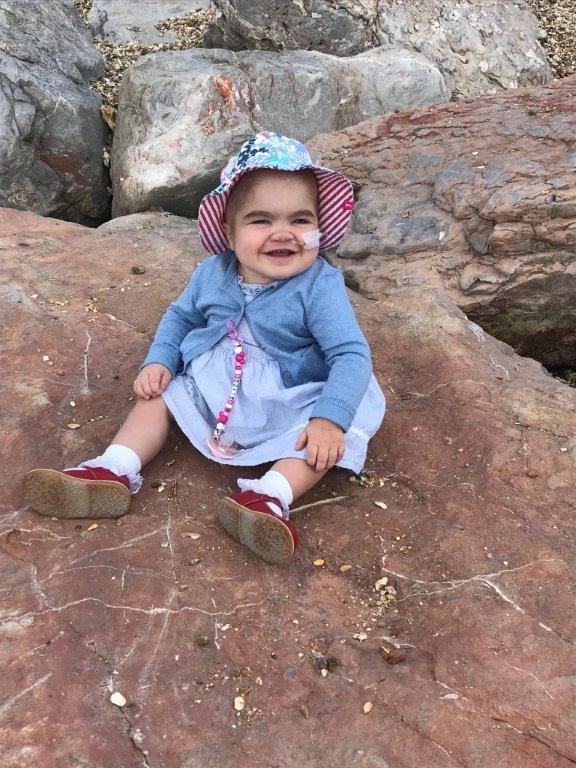
Alice Hobbs had a bone marrow transplant at Great Ormond Street Hospital in 2018
But the ward she was placed on was dirty, her mother Kerry told BBC News.
"There were hairs on the side, almost like somebody had plucked their eyebrows. There were toys that had obviously been used and left in the room, and there was dust on the side. It was just dirty."
While the hospital cleaned the room, Kerry argued that her daughter should be on an isolation ward.
Great Ormond Street disagreed, but in late October, Alice was diagnosed with invasive aspergillosis, external, a fungal infection which can be fatal for people with low immune systems.
The hospital did not investigate where it had come from.
"I was very upset," said Kerry. "I was just told: 'No, no, no... we don't know, we couldn't possibly tell you how long she's had it for.'"
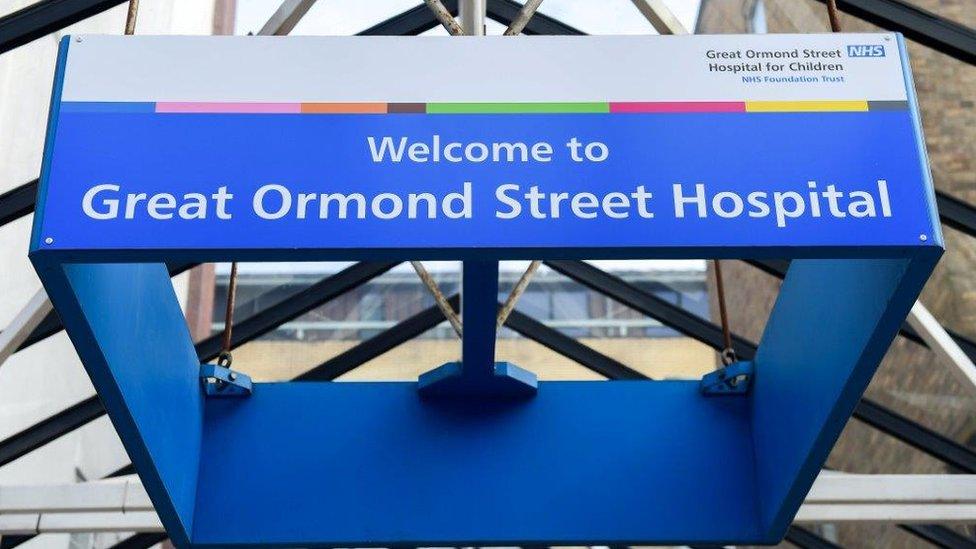
GOSH said that as Alice's death was not unexpected given the infection, it decided not to launch a Serious Incident Investigation, external, a national framework which outlines how it should examine the case and requires the hospital to report the incident to health regulators and NHS England.
We passed the details to Prof David Denning, who leads the UK's national aspergillosis centre.
His conclusion was stark: "I would say there's about a 70 - 80% chance that this was a hospital-acquired infection."
He said that if Alice's death had occurred at a hospital where he worked. he would have launched a Serious Incident Investigation.
After Alice died, Kerry Hobbs discovered her daughter was one of six children to die at GOSH since 2016, of invasive aspergillosis.
The hospital told us none of the cases was treated as a Serious Incident, while internal reviews of each death found no "modifiable" factors.
Staff concerns
The concerns over how Great Ormond Street is run are shared by staff. A staff survey, published last month, made grim reading for management.
Of 11 headline measures, GOSH is below average on 10.
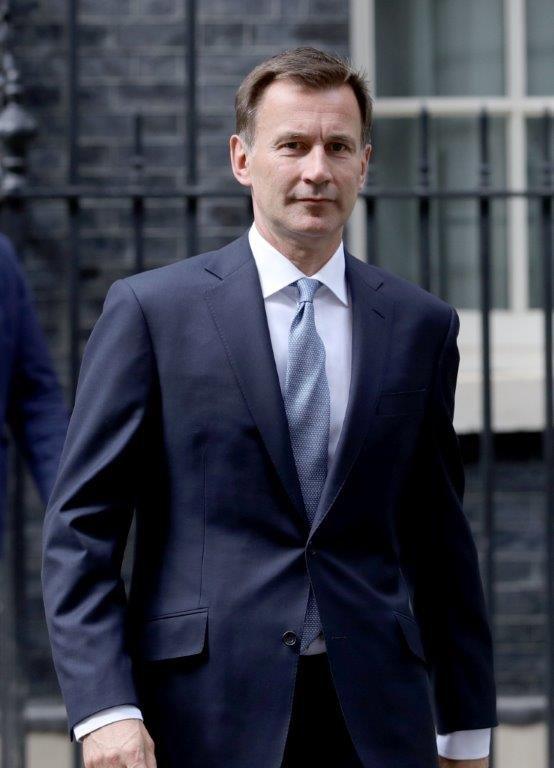
Jeremy Hunt was Secretary of State for Health until 2018
On two aspects, including whether there is a safety culture, it received the lowest score of all trusts in its category, while on three other questions, including how bad bullying and harassment were, and how good the quality of care was, its own staff rated it as among the worst.
"If we want the NHS to offer the highest quality care in the world, then we have to change a blame culture and sometimes a bullying culture, for a learning and an improvement culture," the former Health Secretary Jeremy Hunt told File on 4.
"That staff survey would indicate they don't have that culture at Great Ormond Street.
"We know they deliver world-class care, it's an extraordinary institution.
"I hope that if they're going to preserve that, they will look at the profound cultural problems that the staff survey would appear to suggest is the case."
'Significant failings'
The hospital also faces allegations of covering up errors following the death of 14-year-old Amy Allan in 2018, after elective spinal surgery.
Last year, the coroner found significant failings in her care by GOSH.
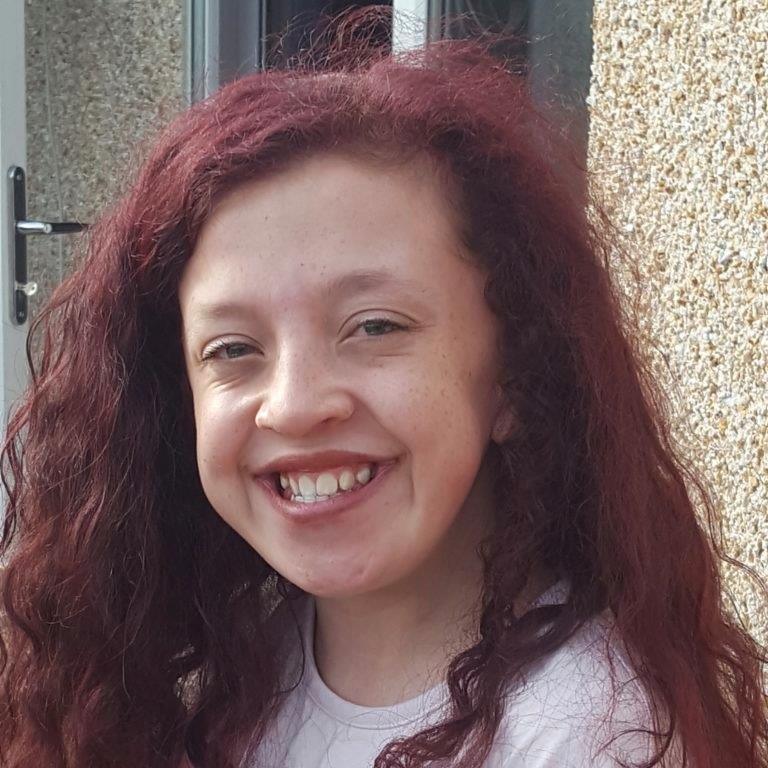
Amy, from Dalry in North Ayrshire, had a number of heart problems
Immediately after Amy's death, her parents raised numerous questions and complained to the hospital, which convened an internal meeting, chaired by Matthew Shaw, now its chief executive.
The minutes, seen by the BBC, show that as in Alice's case, instead of dealing with Amy's case as a Serious Incident Investigation, it chose to deal with it as a complaint, a process not requiring any external scrutiny.
Peter Walsh, head of the charity Action Against Medical Accidents, said GOSH clearly failed in its statutory duty to carry out the highest level of investigation.
"It shouldn't make an iota of difference if a family complain about an incident as to whether it's recorded as a serious incident, if it meets the criteria. They're not mutually exclusive."
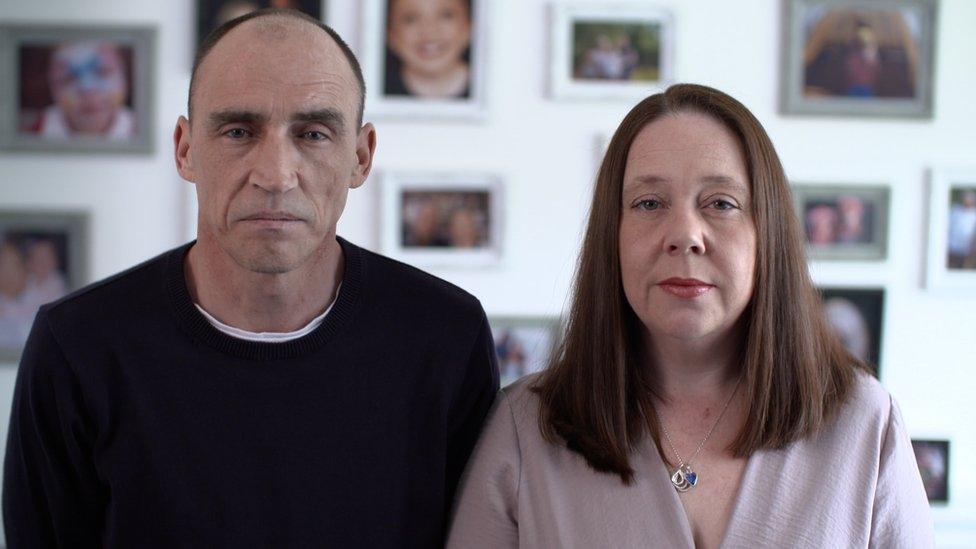
Amy Allan's parents Ricky and Leigh Allan
The complaint response did not acknowledge any major concerns about Amy's care, but the inquest process gave the family access to more than 3,000 documents and a rare insight into the hospital's complaint handling.
Emails from two clinicians reveal concerns that Amy was not stable when her ventilation tube was removed, with one doctor writing: "Do not send what you have written to parents as it is inaccurate and misleading."
The response did not hint at any of those disagreements - by then, however, it had gone through 18 rewrites.
"They knew what they were doing. They chose to take all that information out, that's what's unforgivable," said Richard Allan.
"They seem to be experts at covering up and protecting the GOSH reputation at all costs and it's staggering."
Chief executive Matthew Shaw told the BBC the hospital now accepts that it should have treated Amy's case as a serious incident.
"It was a decision made in good faith at that particular time and - in hindsight - I think we'd have wished that we'd have made a different one," Mr Shaw said.
He also said the hospital "as a learning organisation" would be open to Prof Denning's input on the death of Alice Hobbs.
In a further statement, the hospital said: "We currently have the lowest complaint rate in the country.
"But we do not always get everything right.
"We always look to provide the very best care for our patients and families and are always seeking to learn and share these learnings when things haven't gone as we all would have hoped."
File on 4's Critical Condition: Allegations of failings at Great Ormond Street is on BBC Radio 4 on Tuesday 17 March at 20:00 and available afterwards on BBC Sounds.